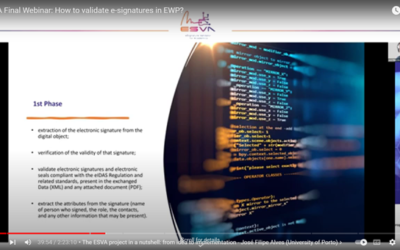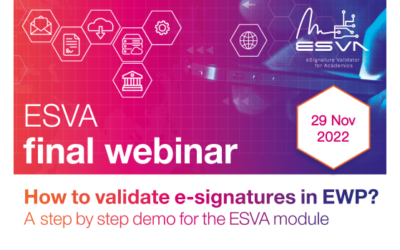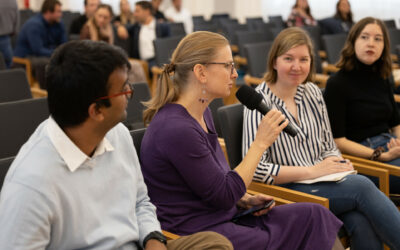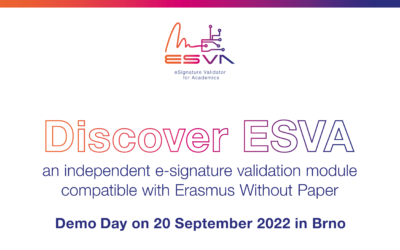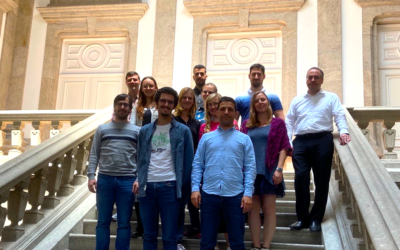News
Updated ESVA software package
Take advantage of the ESVA e-signature validation module. The software package has been updated.
Final Webinar: All About how ESVA Works
The participants of the ESVA final webinar learned all the details about how the ESVA module works and how it can be used to validate electronic signatures in EWP. The recording of the webinar can be re-watched.
ESVA Final Webinar: How to Validate e-Signatures in EWP?
How can you make the exchange of electronically signed documents in EWP more secure? How can their authenticity be easily verified? Join the ESVA final webinar on the 29th of November and learn all about this EWP-compatible validation module.
ESVA Demo Day: Validating e-Signatures
The ESVA module was presented by the consortium on 20 September at the Demo Day organised at Mendel University in Brno. The event covered the role of electronic signatures and the importance of their validation. Participants were shown how the ESVA module works and connects to the EWP. There was also an opportunity to discuss some real-life cases where such a tool can be useful.
Discover ESVA: Demo Day Invitation
How should electronic signatures be verified in the digital environment provided by the EWP? What are the details to be considered in particular? What tools are available? Join us for the ESVA demo event on the 20th of September 2022 at Mendel University in Brno to get insights into the ESVA validation module!
Why and how validate electronic signatures?
Although many people are averse to electronic signatures, the truth is that they are much more secure than traditional signatures and much harder to forge. The ESVA module analyses electronic signatures in two steps.
News from the project consortium meeting
ESVA is well on track: the e-signature validation module will soon be integrated with the EWP network.
What is the difference between qualified and non-qualified electronic signatures?
Both non-qualified and qualified e-signatures are appropriate to clearly identify the person signing in the course of a transaction and can be linked to that individual only. But what makes them different?
Why use electronic signatures?
Why don’t you shorten the time spent on paperwork? Electronic signatures are now commonly used for transactions and in any field of administration.
ESVA project launched
The ESVA consortium has started to work on an independent e-signature validation module compatible with Erasmus Without Paper.

